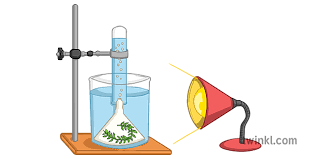
Important Scientific Experiments in NCERT Class 10 Science Syllabus

The NCERT Class 10 Science syllabus is designed to provide students with a practical understanding of scientific concepts through a series of experiments. These experiments are crucial for reinforcing theoretical knowledge and developing scientific skills. Here’s an overview of the key experiments covered in the syllabus:
Chemical Substances – Nature and Behaviour
- Finding the pH of various samples: Students use pH paper or a universal indicator to test the acidity or alkalinity of substances like hydrochloric acid, sodium hydroxide solution, and ethanoic acid solution.
- Studying the properties of acids and bases: This involves performing reactions with acids and bases to observe their characteristic reactions.
- Observing the reaction of metals and non-metals with various substances: This includes reactions with oxygen, water, acids, and salts.
World of Living
- Preparation of a temporary mount of a leaf peel: This experiment helps students observe stomata under a microscope.
- Study of the comparative cleaning capacity of a sample of soap in soft and hard water: This practical work helps understand the effects of water hardness on soap’s ability to clean.
Natural Phenomena
- Tracing the path of a ray of light passing through a rectangular glass slab: This experiment demonstrates the laws of refraction.
- Studying the dependence of the angle of incidence on the angle of refraction: This is done using a glass slab and helps students understand Snell’s Law.
Effects of Current
- Determining the equivalent resistance of two resistors when connected in series and parallel: This experiment introduces students to basic concepts of electric circuits.
- Mapping a magnetic field around a current-carrying conductor: This helps visualize the magnetic effects of electric current.
Natural Resources
- Studying the role of the environment in the protection of organisms: This involves understanding the interdependence of organisms and their surroundings.
Additional Experiments
- Identification of the different parts of an embryo of a dicot seed: This experiment is crucial for understanding the early stages of plant development.
These experiments are supplemented by the NCERT lab manual, which provides detailed procedures, observations, and theoretical knowledge. The practical syllabus is designed to be conducted alongside theoretical classes, ensuring that students can connect practical observations with the concepts they learn in the classroom.
The practical work carries a weightage in the final assessment, making it an integral part of the science curriculum. By engaging in these experiments, students develop a scientific temperament, enhance their problem-solving skills, and learn to work collaboratively.